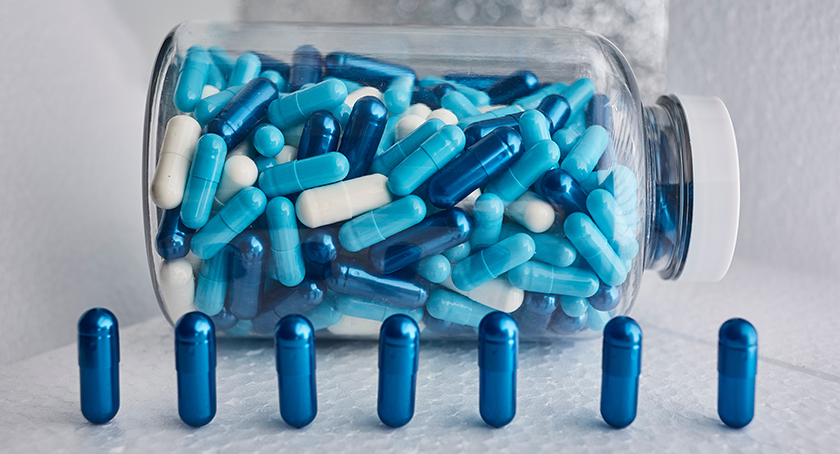Exclusives
What Women Really Want
Women want more than a prescription for relief of menopausal symptoms.

By: Joanna Cosgrove

Prescription remedies for menopause aren’t one-size-fits-all, according to a survey conducted by Archer Daniels Midland (ADM), Decatur, IL. The survey, “Women & Menopause: A Look at Supplement Use,” provides new insights into menopausal women’s desires and behaviors related to their use of natural supplements for the relief of menopausal symptoms and their expectations of healthcare providers when discussing menopause.
The findings revealed that women expect more than a prescription when talking to their doctors about relief of menopausal symptoms. They are also in search of a more proactive dialogue with health professionals regarding non-medicinal methods for addressing menopausal symptoms.
“There has been a significant amount of press surrounding the negative findings in the Women’s Health Initiative Study (the WHI Study was stopped in 2002 due to an increase in the risk for developing blood clots, stroke, breast cancer and heart disease in the group undergoing HRT). Because of this, women have been eager to investigate alternative methods of controlling their menopausal symptoms,” commented Liza Pepple, product manager, ADM Natural Health & Nutrition.
The nationwide survey polled 1258 women ages 40 to 55 and found that a third try natural supplements for the relief of menopausal symptoms, a quarter name natural supplements as their “treatment of choice,” and nearly all who are using natural supplements for hot flashes say these are their “favorite method of treatment.”
Additionally, women entering menopause said they desired more information from their healthcare professional regarding natural treatments to help alleviate the symptoms they are experiencing, as well as “non-medicinal methods” for dealing with menopausal symptoms.
“These new findings indicate that women are looking to their healthcare professionals for comprehensive advice – they want to know about all the treatment options, including natural supplements,” said Mark Messina, PhD, soy researcher and adjunct professor of Nutrition at Loma Linda University in California.
Women’s expectations of their healthcare providers are changing. “It seems that most women are not yet satisfied with the knowledge level of their physicians with respect to alternative therapies,” concurred Ms. Pepple. “For example, when responding to the question, ‘Is there anything about menopause that you wish that your health professional would have proactively shared with you but did not?’ survey respondents indicated they would have appreciated booklets, information on what was coming next or what to expect. They also mentioned a desire to learn about options ‘besides medications’ and/or about ‘specific vitamin regimens.’ They also expressed interest in learning about phytoestrogens.”
The survey, sponsored by ADM, was fielded in March and April this year. The goal of the survey was to assess women’s awareness and use of natural supplements, including products containing soy, for the relief of menopausal symptoms.
ADM sponsored the survey as part of its ongoing soy isoflavone education campaign that aims to educate consumers and healthcare influencers on the benefits of soy isoflavones in easing hot flashes, a symptom of menopause, as well as to direct them to the most effective soy isoflavones.
“Thirty-one percent of women responded that they were aware of soy isoflavones for relief of menopausal symptoms,” remarked Ms. Pepple. “Although the majority of the women seemed to be confident in the benefits of soy isoflavones, it seemed that some of the women surveyed had the misconception that soy was not approved by the FDA.”
As part of its campaign, ADM conducted a critical review of the scientific literature relating to the efficacy of soy isoflavones in easing hot flashes (Menopause, Sept/Oct 2006). Not all soy is effective in the treatment of menopausal symptoms. The critical review outlined that isoflavone supplements that reflect the whole soybean isoflavone profile—the relative ratio of the three naturally-occurring isoflavones found in the soybean and containing more than 15 mg of genistein—appear to be effective.
“Soy isoflavones derived from the whole soybean are higher in a specific isoflavone called genistein whereas isoflavones derived from the soy germ are low in genistein. The critical review showed that isoflavone supplements which contain more genistein (at least 15 mg) were consistently effective in reducing the frequency and severity of hot flashes while those that had little genistein were not,” affirmed Ms. Pepple. “This review clearly showed that some soy isoflavone supplements are an appropriate remedy for treating menopausal symptoms but that consumers and health professionals alike should be aware of the source of the soy isoflavones.”
She concluded by adding that although the safety of isoflavones has occasionally been questioned, recent clinical studies demonstrate no cause for concern. “A paper recently published in Menopause and authored by Cheng, et.al., showed that not only did whole soybean isoflavones reduce acute menopausal symptoms, but also that there were no adverse effects on the endometrium, breast or lipoprotein lipids.”


